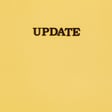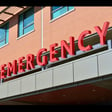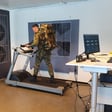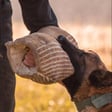Become a Creator today!Start creating today - Share your story with the world!
Start for free
00:00:00
00:00:01

Chris - Paramedic
The rush you get from being a paramedic, the adrenaline dump, can be a big part of what entices people to this line of work. However, there are a lot of other benefits, and pitfalls, that can be found as you venture into the first responder realm. Chris has done numerous jobs in the EMS arena, from EMT, to Paramedic, Flight medic, supervisor and now he is in a more administrative roll. He's seen a lot of changes, good and bad, in his career and this interview is a solid look at this line of work. If you want to work in EMS and want to be successful at it, this is the interview for you. Thanks Chris!
If you liked this interview and would like to support the show, you can do so HERE. Thanks!
Transcript
Introduction to the Podcast
00:00:00
Speaker
Hey folks, you're listening to the jobs podcast. I'm your host Tim Hendricks. Our guest today has been in the emergency response field for about 28, 29 years, something like that. So welcome, Chris. Thanks for joining me on the jobs podcast today.
00:00:15
Speaker
Yeah, thanks for having me. My pleasure.
Chris's Career as a Paramedic
00:00:18
Speaker
So you've been a paramedic for, let's see, I'm going off memory on your LinkedIn profile. It was 28 plus years. Is that correct? 28 years actually this month here in June.
00:00:29
Speaker
Well, you've seen some things then I would imagine your 28 years. I have. Well, we're going to talk about just about everything, but let's start off like we always do. Give us a little bit of an origin story about where you were born and early upbringing, and we'll just kind of go from there.
00:00:44
Speaker
Yeah. So, was born at Cox North in Springfield, actually, where my office is at ah today. um ah Both my parents, they grew up in the area.
00:00:58
Speaker
we ah I was raised in Republic, and which is where I've continued to live for the duration of my life. My kids, ah when they graduate, well, they actually just graduated,
00:01:14
Speaker
They are now fourth generation Republic High School graduates. So we're native to the area and um and that's where I've been.
Entering Emergency Response
00:01:25
Speaker
Right on. So what was some early influences or where did you first think, I may want to make a career in emergency response or in paramedicine or or emergency room care? What was your first kind of inkling that may be where you wanted to go?
00:01:42
Speaker
Or did you kind of stumble into it? Well, I did kind of fell into it by accident. So I graduated high school in 96. I didn't really have any plans ah that summer, but I did know I needed to work.
00:01:56
Speaker
My ah original plan was to going to attend college at Evangel University. um And I had a high school principal who was reserve police officer at Republic PD.
00:02:10
Speaker
said, you know, occasionally they had some openings for dispatchers and it was all on the job training. It was a non-commissioned officer position. It was just, uh, you know, just as a dispatcher. And I, I was interested.
00:02:22
Speaker
And, so I got hired that summer and, I began working as a dispatcher, mostly just on weekends and nights that summer of 96. And,
00:02:37
Speaker
Someone that I had worked with there at the department, ah they had a spouse that worked at Cox as a dispatcher. And they're like, you know, you really got to go to Cox. And, you know, they have good benefits and they pay pretty well.
00:02:51
Speaker
um And I looked into it. And the only requirement at the time was you had to have what was called an EMD certification. It was an emergency medical dispatcher cert.
00:03:01
Speaker
And I applied at Cox. They hired me. And they actually paid for me to get that cert. And from there i worked to see, I was, so I was 19. I got hired on in 97, June of 97 and worked there in the dispatch center um on nights full time. It was great experience. I learned from some really great people, but you know, I got this feeling of, you know, I i wanted to be on the other side.
00:03:34
Speaker
Yeah. Yeah. I wanted to be where all the action was. And at the time, you know, back in those days, you had to be 21, minimal age of 21 to work on the ambulance.
00:03:46
Speaker
So I went to EMT school ah while I was a dispatcher. And then from there, the day I turned 21, I actually transferred out to the ambulance.
00:03:59
Speaker
And I worked in Springfield, worked day shift. did that for a couple years. During that ah two-year time frame, I ah went to paramedic school, got my paramedic license.
00:04:13
Speaker
That was in,
00:04:18
Speaker
continued working in Springfield.
00:04:21
Speaker
And that's kind of where my paramedic career launched, was with Cox in Springfield in Green County. I worked the night shift and It was a wild ride. I did that for about eight years.
00:04:34
Speaker
What was it about when you said a little bit ago that you wanted to be on the other side of that situation? You wanted to be where the action was. What was it about the ambulance or the medic side of things that attracted you more than the fire, the police, or, you know, there's a bunch of different avenues you can go, the yeah ah ER, for example?
00:04:57
Speaker
You know, I think for the most part, it was... It was the environment that I was, you know, when I, when I left Republic PD and went to Cox, it was the, I was just, I just happened to be in the medical industry and, and, and I was just drawn to that. And it was, you know, i wouldn't say an easy avenue to slide into, but the road was paved for me just to transition, you know, straight, you know, straight into the ambulance rather than leave and go to fire police.
00:05:28
Speaker
Did you have any family members that had done something like this or any good friends? Or did you kind of pave the way as far as your circle of influence? No. I didn't have any family in the first responder world whatsoever. Hmm.
00:05:48
Speaker
what is it What was it like your first day on the ambulance, if you can think back that far? was there i mean I'm assuming it was a mixture of nerves and excitement and a little anxiety and you know just kind of an overwhelming, like, this is so awesome and I may throw up.
00:06:06
Speaker
Yeah, I was scared to death. Yeah. I remember very vividly, um responded to a ah wreck on I-44 just outside of Marshfield. There were multiple units, and we were coming from Springfield.
00:06:21
Speaker
And we get the patient, we load them up. And, you know, I was the EMT at the time. So, you know, the paramedic was in the back with the patient, and I was driving go to Cox South.
00:06:34
Speaker
And I'm coming down I-44 westbound, and I'm going to get off on 65 and go south to James River.
00:06:46
Speaker
Oh no. When you've been in the back of an ambulance, you can't, you don't, you're not, you don't see where you're going, but you can feel it. You know, you know, the roads you've done it enough times. And he immediately sticks his head up in the front of the cab and it's like, what are you doing?
00:07:00
Speaker
And I knew right then, you know, I, I made the wrong turn. So now we're headed northbound on 65. And, uh, so I had the first exit, I had to get off, turn around and then, you know, we're back on track, but You know, those were just, those were nerves and jitters. And like I said, I was scared to death.
00:07:22
Speaker
It's, I've been in that situation where when I was early in my fire career and I started driving, you know, what we would call out title where you take your, your turn driving if the normal engineer is on vacation or he's off sick or whatever.
00:07:38
Speaker
And i've I've gone to house fires and whatnot, and all of a sudden I make a wrong turn and I'm completely lost. It's 2 o'clock in the morning and I got to pull over and look at a map and figure out where I'm going. That is one of the worst feelings in the world.
00:07:49
Speaker
Yeah, most definitely. So you've got your foot in the door. You're doing what you want to do. How long did you stay an EMT before you shifted gears and went to get the paramedic license and and kind of keep advancing in your career?
00:08:08
Speaker
It was about two years. Okay. Right at about, yeah, about two years. and And, man, I was, as a paramedic, you know, as an EMT, you're,
00:08:22
Speaker
you're not, I mean, and there's a lot of accountability and responsibility, um but as a paramedic, you know, all that weight and accountability, you And the patient responsibility falls on your shoulders.
00:08:34
Speaker
Man, there's nothing like the first time when you're by yourself, you know, and your partner EMT closes the doors on the back of the ambulance to get in front, you realize it's just you.
00:08:46
Speaker
You are 100% responsible now for this patient.
00:08:51
Speaker
But, you know, I adapted pretty quick and I was baptized by fire. What's paramedic school like is, and how long does that typically last? I would imagine there's differences via state or different programs, but is that a six or a 12 month program Monday through Friday or how does that kind of play out typically?
00:09:11
Speaker
Yeah, you know, so for an EMT, you know, you can do, you know, generally a semester's worth of work for EMT. When you go into paramedic, it's generally, i mean, you're looking 18 months to two years.
00:09:24
Speaker
Oh, wow. Okay. It, you know, nowadays it's different. Most paramedic programs now, not all, are two-year associate degree programs.
00:09:37
Speaker
When I did it, it wasn't, that wasn't even an option. um You know, you just did all the clinical work, which there was, I think I rode and had clinical hours worth, close to around a thousand hours, just on top of the classroom work.
00:09:55
Speaker
But it was pretty intense. You know, and today, you know, I tell younger people, you know, if you don't you don't have a family and you don't have kids, that's the best time to do it. Because once you do, i mean, i I've seen people do They're very successful at doing it. But it's intense and you're gone a lot and it's mentally rough.
00:10:15
Speaker
Do you kind of fall off the face of the earth for 18 months or so just to get through it? Yeah, pretty much. The clinical hours that you said you had to do, is that something where most of your time is on an ambulance or are you spending it in the emergency room, starting lines or doing some other basic care that you might do on an ambulance or is it a whole mix of all different kinds of hours?
00:10:40
Speaker
Yeah, it's a mix of all different kinds of okay avenues of emergency medicine. The majority of it's going to be spent on an ambulance with another paramedic. yeah there are a lot of hours in the emergency room. There were hours I did hours in surgery where, you know, I did nothing but go in and just innovate patients, you know, put that breathing tube down their throat.
00:11:01
Speaker
Um, you know, with, I had an anesthesiologist with me and that, you know, to guide me to make sure it was, everything was done correctly. But you know, those, those are skills you couldn't practice in the classroom on each other. So yeah I would hope not.
00:11:16
Speaker
Yeah. And I, you know they're in the are You know, we did med pushes and we were doing IVs and there was just you just a lot of hands-on experience to be gained from there.
00:11:30
Speaker
the The paramedic school, is that typically done through hospital or is it done through like your local community college or it kind of both depending on where you're at?
00:11:41
Speaker
Yeah, it's just regionally ah specific. It's, you know, here in Springfield area, OTC, they have their paramedic program. You know, you may go up north towards Kansas City. You know, there's community colleges that host them.
00:11:57
Speaker
ah There may be a fire department that hosts their own paramedic program. It just, depending on where you're at in the state um or just in the nation, there are different avenues for paramedic school.
00:12:11
Speaker
There's kind of a mix on the fire side. There's a lot of departments that have ambulances in the firehouses, and they're you know they're one and the same as far as the fire department. But then there's a lot of cities like Springfield where it's completely separate.
00:12:23
Speaker
And you know I kind of prefer the separate myself, but that's mostly what I'm used to. Yeah, Southwest Missouri is extremely unique in the fact that you know the majority ambulances in Southwest Missouri are hospital-operated.
00:12:39
Speaker
You know, like you said, you know, Kansas City, St. Louis, there are private ambulance services, but generally, you know, and this is pretty common throughout the U.S. that the fire departments govern and operate the ambulance service.
00:12:55
Speaker
Hospital-based ambulance services, you know, they kind of started disappearing years ago. However, you know, Cox and Mercy both have very strong operations.
00:13:06
Speaker
Mm-hmm. So you've become a paramedic. Now what? Did you just kind of settle into that role for a while before you shifted gears and went down another
Flight Paramedic Experience
00:13:17
Speaker
road? Or kind of how did your career play out after you were certified and ready to go as a paramedic?
00:13:23
Speaker
Yeah. And I'll tell you, I'm horrible with dates and timelines. But I think I worked as a paramedic for a couple, three years. Before, I assumed a position as a supervisor, and I was a supervisor on the night shift in Greene County.
00:13:45
Speaker
And, you know, back then, you know, nowadays we have six, seven supervisors for Greene County. But back then, we just, we had four, or actually it was three.
00:13:57
Speaker
You know, a couple on days and then one generally at night. And you know it was pretty scarce or the coverage back then was a lot less than what we have now. but But regardless, I, you know, I was a supervisor for, think a couple, three years.
00:14:13
Speaker
And then, then I ended up taking a ah position with Cox Air Care. Oh, okay You know, I had interest in being a flight paramedic and was afforded that opportunity. And I flew with Cox Air Care for about, it was between four and five years.
00:14:33
Speaker
Now that had to be pretty exciting to kind of go from ambulance to, you know, an ambulance in the sky. Yeah, it was, you know, and I forget the exact year, but you know, we had We've always had the air care operation in Springfield. And then we had opened a base in Branson.
00:14:52
Speaker
and And that's where I went. And I flew out of the Branson Air Care Base, which was located at the Point Lookout Airport. So I got to see, you know, a lot of the things I was going to was, you know, around the lake, you know, the lake injuries and the inner facilities out of Cox Branson and everything.
00:15:12
Speaker
a little bit down into Arkansas and, and it was, it was a great time. i really enjoyed it. I did fly a little bit out of Springfield, you know, picking up shifts, but, uh, you know, eventually i can't remember.
00:15:25
Speaker
it was a few years into flying They came in one day and the ah contract that owned the actual helicopters and whom the pilots and mechanics were employed through, they came in and they shut the base down.
00:15:43
Speaker
And so there was, you know, four medics, four nurses, four pilots. ah We were just kind of left hanging. And we were absorbed into...
00:15:54
Speaker
you know, back into the hospital. I stayed part-time flying with Springfield for the following year, but I ended up resigning. It was just, you know, as a flight paramedic, there's so much education and, um, just work that goes into, um, you know, being a flight paramedic or flight nurse and, you know, to work full-time on the, I went back to the ambulance full-time and,
00:16:23
Speaker
it was just hard to keep up with, you know, being part-time on the aircraft. So I ultimately ended up resigning. When you shifted gears and went from the ambulance to the helicopter, I'm assuming that the main change is just your office, so to speak. You're doing the same skills. You're performing the same techniques and ah giving the same care.
00:16:49
Speaker
It's just in a different environment. Is that accurate or is it just vastly different to what you do in each individual apparatus? You know, too big, first off, is, you know, the size.
00:17:04
Speaker
So in an ambulance, you know, I can stand up, I can walk around, i can be right at the patient's side or I can be at the patient's head. You know, I have that luxury of being able to move around the patient.
00:17:16
Speaker
In the aircraft, You're seated, you're belted in, and and um generally, so I flew in the BO-105 out of Springfield, which is a very small aircraft. When I was in Branson, we flew out of an A-Star and a Bale-407.
00:17:35
Speaker
The 407 had a lot more room, um different configuration, but like in the 105, I was seated at the patient's head. And that was it. That was about all I had the room to work with.
00:17:48
Speaker
And the nurse was seated at the patient's side. ah So, you know, my job is to manage the airway. The A-Star, honestly, been so long. I don't remember exactly what the A-Star configuration was. The 407, we sat at a bench at the back of the patient. I still had the patient access, but I was towards the head.
00:18:09
Speaker
um But I could get a little bit to the side if I needed to. But it was, you know, doing CPR on an aircraft is whole heck of a lot difficult um than doing it in an ambulance. Oh, I bet.
00:18:23
Speaker
You just don't have the room. And, you know, if you think about like OB patients, well, they're now facing, their feet are facing opposite direction of you and you can't necessarily get to where you need to be or, you know, different injuries.
00:18:40
Speaker
You know, now you just can't necessarily get to where you need to be. So, you know, there was a lot of, uh, it was a learning curve and how to adapt and, and work around those things.
00:18:51
Speaker
You know, as far as patient care goes, you know, we think, you know, the aircraft, we can, we can do all these things, uh, different than what, what we did on, on the ambulance. But, you know, a lot of them are similar. We did a lot of the same procedures, you know, with the aircraft,
00:19:09
Speaker
or being part of the flight crew. We were trained on multiple other things. ah There were some procedures we did that I couldn't do on the ambulance. A lot of the pharmacology and the drugs that we carried were different.
00:19:20
Speaker
It was a lot more advanced, but, you know, there were days, you know, we'd respond to these calls. And to be honest, you know, a lot of times the ground ambulance had a lot of stuff done for us when we got there.
00:19:34
Speaker
And we would just load the patient and maintain what they had done. And we were just a super fast ride. and Nice. Yeah. I've ridden in the back of an ambulance a number of times, you know, when we would run medical calls back when I was on an engine.
00:19:50
Speaker
A lot of times, you know, if the ambulance needed a rider is what we would call it. And so, you know, we'd hop in and most of what I did was holding a bag or doing some form of either rescue breathing or usually compressions on CPR was about 90% of what I did. So it allowed the medic, you, to do, I was just a glorified monkey and you guys were doing all the smart people stuff and I was just, you know, pumping away at somebody's chest.
00:20:16
Speaker
So, I never really got the chance to watch you guys work. I just know you were always, you know, doing all kinds of advanced stuff and I'm just focusing on what I'm doing.
00:20:27
Speaker
The, you know, the, the ride in the back of an ambulance, when you're screaming through town, you know, where every pothole's at, you find every single one. I can only imagine in a, in a helicopter is the turbulence, the same thing as pothole filled road.
00:20:43
Speaker
but Yeah, and it could be worse. Really? Well, guess you're dropping, what, 10, 12 feet sometimes or more? You could. You could. And, you know, it all depended on the weather and the wind and the headwind or the tailwind.
00:20:57
Speaker
You know, on a nice, quiet day, i mean, it was just as smooth as ice. And, you know, or on a windy day, you know, it was We'd get sick just from bouncing around.
00:21:10
Speaker
you know, the helicopter, we're just floating in the sky and You know, almost, you know, bouncing up and down, side to side. And, you know, we had, I'll be honest, we, yeah at Cox Air Care, I flew with some of the best pilots that I've ever met. And they were great. And they were great at maintaining that aircraft, you know, in in the air and keeping us safe and keeping it smooth.
00:21:34
Speaker
Hmm. What kind of advice, if someone just approached you out of the blue and said, hey, I really think that I would like to do what you do, what kind of personality traits or, you know, you hear the term soft skills, kind of those intangible things that allow people to be successful where others may struggle.
Advice for Aspiring Paramedics
00:21:57
Speaker
Are there any high points of advice that you would give someone who is exploring your line of work and wants to follow in your footsteps? Yeah. You know, I've thought about this. because If you'd asked me this question 15, 20 years ago, I probably would have given a different answer.
00:22:13
Speaker
Mm-hmm. But knowing what I know now, you know, it takes a lot of a very so sympathetic person, a very patient person.
00:22:24
Speaker
Mm-hmm. You know, at Cox, currently, we have 370 employees in our EMS system. there are 370 different personalities.
00:22:38
Speaker
Some work better than others, but you know for the most part, you know everybody's a little different. and we you know Each paramedic operates a little differently than the next. and we yeah It's hard to say you know to really pinpoint down what type of personality or person it would take.
00:23:01
Speaker
you know I can tell you that being an EMS provider, it will change your life. It will change your perception on things. It will, it will change you as a person.
00:23:13
Speaker
Uh, I could tell I am not the same person I was 28 years ago. I don't think like that person anymore. You know, there are some aspects where, you know, I feel hardened and jaded.
00:23:25
Speaker
There are, you know, other aspects where, you know, I am more sympathetic to different situations, but you know for the most part, you got to want to be there.
00:23:39
Speaker
you know it's not just a It's not your typical job. and yeah you got but Everyone that's in it has does it because that's where they want to be, and they have a passion for you know taking care of patients and and doing the job.
00:23:55
Speaker
you really kind of hit the nail on the head there a minute ago because in a lot of different occupations, you can kind of see a common personality trait. I've been on the opposite side of the folks in EMS for a long time, a number of years.
00:24:12
Speaker
And I've noticed that they're a constant fluctuation in personalities between introvert, extrovert, and the whole gamut. But what I do notice is that when it's time to work, there's a common switch that gets flicked and it's okay, I'm in work mode now.
00:24:31
Speaker
And you kind of, it's not a cold, I turn off my emotions and I'm a robot. It's you start ignoring the noise and you focus on the priorities.
00:24:43
Speaker
You know, when I was first in, it's ABCs, airway, breathing, circulation. That's what you focus on. Don't worry about the screaming. Don't worry about the mom. Just focus on you know, the life-saving tasks at hand.
00:24:56
Speaker
That's all that matters. And it helps you kind of, you have to learn. And I don't think you can be born with that. I think you have to learn to mentally prioritize and box things out.
00:25:10
Speaker
And you would have to do that in your career to be successful. I would assume. Yeah, I agree.
00:25:19
Speaker
There are just, there are so many different, um, trying to think, I want to put this ways that you have to, your thought process and, you know, your approach, how, when coming into the job, you know, I speak when, um,
00:25:41
Speaker
when we have new hire academies and and I go in, I do a little portion and, and I always end it, you know, with, ah you know, I tell people, you know, work to live, don't live to work. Don't make this job your identity.
00:25:55
Speaker
ah You know, don't, I don't, you know, when I started that it was, that's what I did. i was Chris, the paramedic. I was, you know, I was always working at, you know, any overtime I could get, i was doing it.
00:26:08
Speaker
you know at the time I was single, but, you know, eventually I got married and I had kids and I made a conscious effort. When my kids were little, I thought, you know, I don't work 24s. I don't want my kids to grow up and say, my dad was never home.
00:26:22
Speaker
He was always gone Christmas. He was always gone working. He missed my ball games or, you know, whatever it may have been. I didn't want my kids to have to reflect back on that. So, you know, I was made very conscious decisions, you know, that I, I did not want this to be my identity, that it was a job.
00:26:45
Speaker
And when I went to work, I did my job. But when I went home, you know, I left my job at my job. hmm.
00:26:54
Speaker
Do you think that, well, let me step back. You have to have ah certain ability to not be grossed out. If the smell of puke or the sight of blood or poop or other, bo pick a bodily fluid, you're going to encounter those. Sometimes they're going to get on you no matter how much you try to prevent that.
00:27:16
Speaker
I think there has to be a certain cast iron stomach, so to speak, or you got to get used to it really quick in your line of work. That was one thing that surprised me a little bit. I've never had a weak stomach where I would just throw up at the side or the smell of things. But, you know, you also aren't typically dealing with people that have severe injuries.
00:27:39
Speaker
And, you know, you're dealing with more bodily fluids than you've ever seen in your entire life. Oh, yeah, absolutely. it it i a Every bodily fluid that you can imagine, I've had on me.
00:27:53
Speaker
yeah i've I've got a story. I won't go into a whole lot of detail, but I had a event one time where I had, you know, one time in my 28 careers, only one time did I puke on scene. And it was when I had a ah ah patient...
00:28:09
Speaker
inadvertently they vomited in my mouth. I mean, I got their vomit in my mouth. And when someone pukes in your mouth, my response is just going to be, I'm to puke back. And, uh, so when I'm not laughing at you, I'm laughing with you. Cause I know and that's all you could do now, but you know, got it in my mouth.
00:28:29
Speaker
And my response was I puked. And when I started puking, all the firemen that were on scene started puking. And my partner was dry heaving and it was a mess and everybody's puking now and um I'll never forget it.
00:28:50
Speaker
But yeah, you know, urine, blood, feces, all of it, brain matter. I've had it all on me. I'll go half a shift and not even realize till I get home. I'm like, oh man, it's on my pant leg and never even knew it.
00:29:06
Speaker
Yeah. My goodness. When we're done recording, if you can remember who those firemen are, I want to know because I i know a lot of them. I'm hoping I know some of them. ah Oh, that would be great firehouse banter right there. but Yeah.
CHAPS Program and Healthcare Innovations
00:29:20
Speaker
Yeah. So what would you say is your favorite part of your job? What is it that gets you up every morning and to go into work?
00:29:32
Speaker
Well, you know, since, you know, to step back just to just for a couple minutes. So, you know, when I left the aircraft, ah you know, I went back to the ambulance and I and I worked. I went to Green or I'm sorry, Christian County and I worked and.
00:29:50
Speaker
and I ended up as the regional manager at that position for about two or three years and then. my wife, her, her mother had passed away and she, my wife is from the boot hill of Missouri. And we ended up moving down there for about, it was about eight months.
00:30:06
Speaker
And, uh, then we came back and I came back to Cox and, uh, and I went to Republic and I worked for a few years. And then, um, we Cox developed this, um,
00:30:20
Speaker
new program, we call it CHAPS, Cox Health Advanced Practice Paramedics. It's community paramedicine is is what it is. And transitioned into one of those roles, and I can explain more on what all that entails. But eventually, after a couple of years, I ended up taking the supervisor position and I oversee the whole CHAPS operation now.
00:30:44
Speaker
So, you know, what we do basically is is we go in and these are patients that were pretty sick when they were in the hospital, specific diagnoses. and And once they're discharged, we basically, we follow them for about 30 days.
00:31:00
Speaker
People would like to compare us maybe to maybe home health. But, you know, the one thing I say is, you know, with home health generally, you know, and this isn't always the case, but You know, at two o'clock in the morning, you know, if a patient becomes symptomatic and they were to call a home health provider, the most generalized response is going to be call an ambulance.
00:31:25
Speaker
Whereas what we would do is we're going to formulate a plan and we can go and we can treat the patient at home. Our number one goal to keep the patient from having to return back to the hospital.
00:31:36
Speaker
So we're working with these patients to keep them healthy and out of the house or out of the hospital so that they don't have to readmit. So in doing that, you know, we address a lot of social determinants of health and just personal issues that the patient may be encountering.
00:31:55
Speaker
but One of the big facets that we do is, you just helping the patient navigate the hospital, yeah navigate the health system. So, you know, so back to your question, you know, what, why do I get up? Why do what drives me?
00:32:10
Speaker
now is, you know, these patients, and this isn't a Cox issue. This isn't a Mercy issue. This isn't an issue just to Southwest Missouri. This is all over the United States, but, you know, the healthcare systems are broken and there are so many gaps.
00:32:29
Speaker
And in And every day people are falling through these gaps and because of it, their health is not appropriately addressed or in a timely fashion or they're not getting what they need or they may just not even have the health literacy, healthcare literacy to navigate all that.
00:32:50
Speaker
So, you know, now what drives me is being able to go in and be that voice and that advocate for a patient. You know, they get home and you know, they were supposed to have oxygen delivered, but the order never got placed or the order got lost. And now, you know, let's say that they, you know, they've gone a week without any oxygen and they're symptomatic and their stats are dropping and they've got increased shortness of breath. But the whole reason was because they never got their oxygen.
00:33:22
Speaker
But, you know, now with, you know, like the CHAPS program, we make sure all that happens. And, you know, our first visit with them, we see these patients in the home, in their environment, and being able to address these issues. You know, we go in and these patients, you know, may not have been able to afford their utility bills.
00:33:46
Speaker
And they've been living without electricity for the last two months. So, but they don't even know where to start or where to go for help. And we have those resources who can do that. And we go in and we can help get their electricity turned back on.
00:34:02
Speaker
We can help, you know, get their water turned back on so that they have running water. Looking, you know, are they are they food starved? or You know, do they have the appropriate energy?
00:34:16
Speaker
amount of food, or nutritional food that they're a available. So, you know, making sure that these patients have what they need to be successful in taking care of their healthcare and their healthcare needs.
00:34:29
Speaker
And by doing that, you know, a lot of times we work directly with the patient's primary care physician. So, you know It's not hard for us to reach out to their doctor and be like, hey, this is what's going on. This is what we'd like to do.
00:34:42
Speaker
you know and Even if it's you know perhaps ah looking at their medications and maybe you know choosing better or an alternative medication or it's very patient-specific on what their needs are.
00:34:57
Speaker
But that's what drives me now is to be able to help these patients that have fallen through these gaps and to make them successful and see an improvement in their quality of life.
00:35:12
Speaker
Is that a natural, i can see the desire where for the first part of your career, you were right there when it hits the fan and you're the one that steps in when things are falling apart and gets them stable and gets them to the emergency room.
00:35:28
Speaker
But one of the drawbacks of being a first responder is a lot of times you move heaven and earth to help somebody and then you just have to leave the room and you have no idea if what you did and all your effort did any good or not.
00:35:43
Speaker
And now you kind of get to see them on the second half of that journey where, okay, I'm them. The first responders helped them out. They got them where they needed to be to get the care they needed. And now I'm going to make sure that we continue that healing process in all these different areas that you just mentioned.
00:36:02
Speaker
Right. And you are right. You know, when we, in the beginning of the career or you know, working on the ambulance, you know, you're with the patient, you know, you're with them in the house for five, 10 minutes, get them loaded on the cot.
00:36:17
Speaker
In the ambulance, depending on where you're at, where you're going, you know, you may be with a patient 10, 15 minutes, you know, some of our other areas can have up to an hour transport, but generally you're not with the patient very long. You drop them off at the ER and that's the last you ever hear of them.
00:36:33
Speaker
You don't know what the outcome was. Was it positive? Was it bad?
00:36:39
Speaker
With CHAPS, now we're getting these patients and we actually get to spend time with them. We're with them for 30 days at a minimum, minimum one visit a week.
00:36:49
Speaker
You know, we're available to them 24-7. If they need anything, they call us, whether it be health-related or, you know, ah any of those social determinants of health.
00:37:01
Speaker
And we get to see throughput. We see the final outcome. We generally, you know, that's what we're pushing for is to fill all those gaps. And we work, you know, sometimes we we, those that may not have healthcare literacy as far as navigating the system or just the general knowledge of their own diagnosis,
00:37:26
Speaker
You know, we help, we will we will hold their hand and and walk them through the process. The end goal is, is that once we're gone, they can manage all this on their own. They now know how to do it.
00:37:38
Speaker
Sometimes it's harder than others, but we've been very successful at it. And, you know, a lot these patients, we want to leave them in a better spot than when we got them.
00:37:51
Speaker
That's, i I mean, I really like what I'm hearing. and I didn't know that that program did all that you described. So I mean, that's totally, I'm on board with it. Admirable, very much so. Yeah, it's, you know, we're healthcare providers. We are, you know, quasi social workers.
00:38:10
Speaker
we're We're a little bit of everything. We're, you know, jack of all trades. And, you know, it's,
00:38:19
Speaker
Cox has embraced this. We started this about eight years ago.
00:38:24
Speaker
The only other program right now in the area is in Bolivar at CMH Hospital, and they have a very similar program to ours. There are, you know, obviously in the United States, this concept has grown even before we embraced it, but it is starting to take off now.
00:38:42
Speaker
And every, you see, they the term they use, the umbrella this falls under is called mobile integrated health, MIH. Okay. Or community paramedicine. And, you know, I say it all the time. You see one MIH program, you've seen one MIH program.
00:38:59
Speaker
ah Everybody is trying to address a different need in their region. For us at Cox, you know we see Cox patients.
00:39:10
Speaker
Our need is decreasing readmissions and keeping patients at home and healthy. You may go to other places in the state or the nation.
00:39:22
Speaker
Their need may be, you know, maybe it's, for example, handing out Narcan and addressing, you know, oh op we opioid use.
00:39:35
Speaker
Or it may be... ED high utilizers. You know, I mean, there's there's just, every program has is trying to address a specific need for their for their region. So it's a little different. The uniqueness for us is that we're hospital-based, which gives us a plethora of resources.
00:39:58
Speaker
But we not only that, we have direct access to all 500 plus of our physicians. So, you know, I'm in, myself and the staff are, we're in direct communication with all the doctors.
00:40:11
Speaker
We document in the patient's chart with the doctor. have access to, you know, the patient's chart. I can see everything that's happened. Every doctor's visit, every note that was put, everything that happened while they were inpatient.
00:40:24
Speaker
You know, if a doctor made a comment that they they think that they might want to try, you know, a new medication, but they didn't get discharged with it. Or, you know, I can reach out to the doctor and be like, you know, did did you still want to do this? Because, you know, we can make this happen.
00:40:39
Speaker
It's just the benefit to being a hospital-based EMS is astronomical. But I don't say that to say other programs can't be successful because they are.
00:40:51
Speaker
They're just, like I said, addressing different needs. Well, I can see the hospital side of things being, it's a little more, let's get to the people that actually make the decisions. You know what mean? There's a lot of red tape and middlemen that are taken out of the equation.
00:41:05
Speaker
And as someone who has spent a lot of time in Children's Hospital in St. Louis with my oldest son over the years, when you first are exposed to a serious health issue and the medical system, even with pretty good insurance that I had through my employer.
00:41:26
Speaker
That is, you have no idea what you're in for as far as that journey. There are so many doors to open and you can't, I mean, thank the good Lord for our case manager, Debbie, who stepped in and said, look, let me explain what EOBs are. Let me explain how things are coded. Let me explain how they justify treatment.
00:41:49
Speaker
All these other things from the very beginning to the very end of the process, Even unless you work in the medical field, you have no idea what you're in for when you go down that road.
00:42:00
Speaker
Right. So. and And there are so many self-inflicted barriers in the health system that. we don't even realize until they're happening.
00:42:15
Speaker
And, you know, a lot of the patients, they're just, they just get frustrated and they give up. And, yeah you know, I'll give you just one quick, you know, a patient with COPD gets discharged.
00:42:26
Speaker
Let's say it's a new diagnosis of COPD. And, um, they're going to be scheduled for follow-up with a pulmonologist. And they call to make that appointment.
00:42:38
Speaker
Well, generally, and I say generally, this isn't always the case, but the pulmonologist, they won't schedule them until the patient's had what's called a pulmonary function test. So now we've got scheduled pulmonary function test.
00:42:53
Speaker
Well, there's only, you know, just like any clinic or or um appointment, you know, there's a waiting list or not necessarily waiting list, but a waiting period that it's going to take before you can get in and do that.
00:43:06
Speaker
Well, that can extend out quite a while and it sometimes past even our 30-day enrollment. So the patient, they're waiting for that pulmonary function test before they can even go in to see the pulmonologist. Well, the patient becomes symptomatic again.
00:43:22
Speaker
And we reach out to the pulmonologist, but the pulmonologist hasn't even been able to see them yet. So there's a barrier right there. We can't get patients in. And we can't get, you know, their immediate symptoms resolved. So what we did was...
00:43:41
Speaker
We said, what can we what can we do ah potentially address this? And with the help of our medical director and pulmonology, we looked at a new machine. It's a spirometer, but it's essentially like a bedside PFT.
00:43:57
Speaker
So on all our COPD patients, we do this bedside spirometry. And it gives us the same numbers that they're a lot of the same numbers are going to do at a PFT in the hospital.
00:44:09
Speaker
So I can send those results right over to the pulmonologist now from the home. can get that appointment scheduled. And they have what they need.
00:44:19
Speaker
We can negate that whole waiting period. And then also we can trend, you know, during our 30 days, every visit we're going to go in and we're going to do
00:44:31
Speaker
that, that PFT test. And so now we can trend how they're doing and, and with different indicators, you know, potentially trend, are they nearing an exacerbation?
00:44:43
Speaker
And then we can jump on that and treat that long before they get to that point of getting in trouble and not being able to breathe and ended up back in the hospital. It's kind of like that scenario where somebody is looking for a job, but you have to have experience for an entry level job and you can't get the experience until you get the job. It's just like you're in this, you know, I can't do that until I do this, but I can't do this until I do that. And it's just like good grief. But right something that you mentioned there about that home test, I'm starting to see that.
00:45:13
Speaker
that type of situation pop up more and more where more testing, and I think technology and AI and things is probably going to accelerate that move.
00:45:23
Speaker
You can do a lot of these tests at home as a kind of a preliminary, what are we dealing with here and maybe how bad is it? And it gives a doctor a gauge to say, okay, your situation looks pretty rough. We need to get you in for more in-depth, really expensive testing.
00:45:40
Speaker
after that initial kind of home test. Are you seeing more of that? Yeah, absolutely. Okay. Do you think it's going to go that way with technology and AI?
00:45:51
Speaker
do. I do. So what we're doing now, and we're just the tip of the iceberg. You know, where we'll be in 10 years with community paramedics, it will be completely different.
00:46:06
Speaker
You know, when you look at EMS as a whole, You know, really, EMS is still in its infancy, especially when, you know, compared to nursing.
00:46:15
Speaker
You know, even though there's a lot of people, I mean, we've been doing this for years, but EMS is still, in the grand scheme,
00:46:24
Speaker
fairly new. And what we're doing now compared to what we were doing 30 years ago, you know, totally different. And in 10 years, EMS is going to look different.
00:46:36
Speaker
You know, there's a lot of ah legislative efforts and different things that are going to have to happen first. But once that does, it's going to open the doors to where, you know, paramedics, instead of just being a a transport vessel, we, you know, we'll be able to do more of preventative um type care and treatment at home, treatment in place, alternate destinations.
00:47:07
Speaker
What it looks like in 10 years is vastly different than where we are today. Yeah, I've seen the change just in my career. It's moved away from essentially a meat wagon to now you're the first level of medical care.
00:47:25
Speaker
And like you mentioned, the ability to prevent things and step in in different capacities, your job is just going to evolve and it's going to become more layered. But that's great for the patient because they get a more custom care package delivered to them.
00:47:43
Speaker
What's a, and I think we can go back to when you got throw up in your mouth. What's what what you just, what do you dislike most about your job? That episode aside.
00:47:56
Speaker
Red tape. Yeah. I mean, really the parts that I don't like about my job and being more administrative now, I don't get lot of patient care, but you know, dealing with,
00:48:13
Speaker
the different avenues, whether it be state regulations or hospital policy or just trying to maneuver around that. Things that are barriers for us and more importantly, that are barriers to the patient. what How can we get around this? and but But that's what that what my staff does.
00:48:33
Speaker
I mean, they're problem solvers. They're professional problem solvers. And they they don't take no for an answer. And and And that's how they operate and that's how they're they've been successful.
00:48:44
Speaker
So, you know, in the same aspect, you know, I'm always looking for ways, you know, okay, so we can't do this because of this, but can we make it work if we go about it this way?
00:48:57
Speaker
You know, it's just, you know, a lot of just business level type
00:49:05
Speaker
aspects that prevent barriers. And and it's not. It's not a Cox issue. It's not necessarily even a health care issue. It you know what happens in every aspect of the workforce.
00:49:19
Speaker
Yeah, you'll have barriers in any line of work that pop up and you got to figure out a way to get over, under, around them. Yeah. What would you say if somebody said, did you have any mentors in your career that really shaped how you do your job?
00:49:36
Speaker
And it doesn't always have to be for the positive. Sometimes some of the best lessons we learn are from negative people. But have you had anybody that really influenced your job?
00:49:48
Speaker
I had both positive and negative um influences. Actually, i would I would actually say had more negative than positive. um I learned what I didn't want to be and how I did not want to treat patients and how I did not want to do things from some people early on in my career.
00:50:09
Speaker
You know, when I started on the ambulance, I was the youngest person at the time working at for the Cox service. And there was a lot of people who had been around for a long time and they, excuse me, they were, um you know, burned out, jaded and hard and toughened and and um they didn't want to be there.
00:50:31
Speaker
But, you know, like what happens to a lot of us in EMS is we've been around for so long. you know It's hard to just pick up and go pick up another career or you know start over something else. so you know A lot of you know EMS providers feel stuck where they're at. Yeah.
00:50:51
Speaker
and And I always told myself, you know, if I ever came to that point, I would, I would, I would address it and I would move on. And and that's, uh, when, when I moved to chaps, you know, I was to the point my career where I, you know, I was ready. I needed to move on to do something different.
00:51:08
Speaker
And the transition was great for me, but, you know, I worked with a lot of people in the beginning that, that didn't, and they, they had, lot of bad habits and bad patient care.
00:51:20
Speaker
And I knew that's not, that's not how I wanted to be. And, you know, some of my orientation and training I got, you know, was in the beginning was questionable.
00:51:31
Speaker
And I thought, you know, as, as new people come through, this I'm going to teach them this way, how I wanted to be trained but never was, or teach them the things that I thought were important but were never shown to me.
00:51:44
Speaker
And so you know, those even though they were negative experiences, those negative influencers, you know, actually did shape me to be more successful in the future.
00:51:56
Speaker
Now, as far as positive, you know, one person I think of is as Dana McNamara.
00:52:03
Speaker
who coincidentally, she's a chap now and, um, we work together and, but she, You know, she was a very positive influencer in my life and in my early career.
00:52:17
Speaker
And we worked together for many years. You know, when I said I was a supervisor, she was a supervisor also. and And I had the south side of Springfield. She had the north side of Springfield. And we we we both worked overnights and just a fun, ah positive personality to be around. And And really enjoyed working together. We had a lot of the same working style and thought process.
Career Reflections
00:52:43
Speaker
and you know and And there were others also that I worked with that you know obviously shaped my career and and how I operated. But she'd definitely be one that stands out.
00:52:57
Speaker
It's always nice when you have those folks that when you're, you know, knee deep in the mud, you've got folks that are right there with you that have that same kind of a positive can-do attitude.
00:53:08
Speaker
I know that sounds kind of corny, but really the people, when you're dealing in this line of work where the stress level is pretty high on a regular basis, having those folks that are right there with you with the same mentality and approach, it makes it really worth it and it almost makes it satisfying as odd as that may sound yeah you know it the year and we refer any ms we refer you know to our co-workers our partner but your partner you know they can make or break you yeah you know we spend a lot of time sitting in a truck together whether you're working 24-hour shifts 12-hour shifts eight tens
00:53:50
Speaker
You know, in EMS, we don't get a lot of station time. And um especially in Greene County where we post. And, you know, so you're together all the time. And you get a bad partner or someone that you just don't mesh well with.
00:54:05
Speaker
Yeah. It makes for a long shift. yeah It does. The negative people, and I've run into em it sounds like they were cut from a similar cloth as the negative folks that you encountered earlier.
00:54:19
Speaker
I think a lot of those folks don't realize that that's where they're at. I think they've, over their career, it it's slowly chipped away at them and they just become hardened and hardened and hardened.
00:54:30
Speaker
And then they're just like a rock, just a spike of a personality there. And I don't even think they realize it most of the time. This job can, it can have some negative effects on your personality,
00:54:45
Speaker
And we've all seen people that have crashed and burned because it just probably wasn't the right career for them. But you have to figure out ways to navigate that minefield. And that can be tough. Yeah, most definitely.
00:55:02
Speaker
What's your best advice? when you're talking about dealing with failure or mistakes. You know, you talked earlier in our conversation about you made a wrong turn and ended up going north on 65 as opposed to south.
00:55:15
Speaker
And we talked about how awful that feels. But when you've been in a situation where someone that reports to you or works for you makes a mistake, how do you advise them on dealing with that mistake and then moving forward?
00:55:29
Speaker
You know, i think my son plays baseball and we've had a lot of conversations the last few years. And, you know, one thing I've always told him, is as I say, make adjustments, not excuses.
00:55:42
Speaker
And that's good. I think when when dealing with failure and you've got you' got to learn from it, but you can't dwell on it. you've You know, the big thing is, is you've got to acknowledge the failure and, you know, there's a lesson to be learned from it. What could be done differently?
00:56:03
Speaker
and And then you've got to make adjustments. And, but not blaming anybody else, but actually taking the accountability and owning it. that that would be probably, you know, one of my biggest pieces of advice, you know, and and what I generally would I tell my staff would be, you know, we're all grown adults. We act like adults and yeah, you know, I don't, I don't micromanage.
00:56:32
Speaker
There's a lot of autonomy within my group and
00:56:37
Speaker
but there's an expectation, you know, to be professional and, And, you know, each other hold everybody, each other accountable. But, you know, for the most part, you know, with failure, you know, it's going to happen.
00:56:52
Speaker
and and And one thing, especially with brand new paramedics, they come out of school just full of piss and vinegar, and they are ready to hit the ground running. And they, and, you know, I don't, not being on the truck for for a few years, but, you know, we used call the Paragot syndrome.
00:57:08
Speaker
Oh, yeah. Yeah. And you've seen it. And these guys come in, they know it all. You cannot tell them anything. Right.
00:57:17
Speaker
And let me tell you, those guys will get humbled in a hurry. Oh, yeah. But they won't they don't want to take accountability for it. or There's always going to be b blame. You know, it was so-and-so's fault or it happened because of this. It wasn't my fault.
00:57:31
Speaker
But, you know, you've got to take those those lessons and you've got to learn from them. And then you've got ah adjust and change your strategy. Yeah. And it's easy for me to sit here and say, you know, well, you should have done this or you should have done that. You know, I know that I haven't always handled failures correctly in my life, but as I get older, I'm kind of learning to just to respond better, I guess, hopefully anyway.
00:57:56
Speaker
But what you said about those guys that come out of paramedic school that just, they know it all and you can't tell them otherwise. It's quite a sight to see when someone like that gets humbled because usually it's a brutal process to watch them go through. yeah It's their own private Hades and they, they come out on the other side, either way worse or noticeably better.
00:58:24
Speaker
Yep. You are exactly right. There is no middle ground on how they respond to that. And I don't know what magic word needs to be said to, but I always ask every guest how to deal with failure because I see that as such a common stumbling block, not just in life, but in every occupation.
00:58:44
Speaker
And some folks don't realize that you are going to make a mistake. It is not an if, it is a when. And the best advice that I can hopefully share with folks is all of my guests telling how they have dealt with and then how they helped their subordinates for lack of a better term deal with or respond to failure.
00:59:08
Speaker
So what would you say would be, is there another career that you always kind of in the back of your mind thought, man, I could be a rock star or I could be, you know, the next Brad Pitt or whatever it might've been.
00:59:25
Speaker
Yeah. So I, I, graphic design ah something I've always, I, so, you know, previously I I've had in the past, I operated a small home-based graphic design business.
00:59:41
Speaker
I, you know, I, several years ago bought a vinyl plotter and I started doing it. It got to a point, you know, it got big and had to make a decision. You know, what am I going to do?
00:59:52
Speaker
Do I want to do this or do want to be a paramedic? I really love doing the graphic design, but you know, the thing is, is, know, I, every, every two weeks I know I'm getting a paycheck and, yeah and I know how much it's going to be, you know, doing, I just, I didn't never, or I never had that faith to just take that leap and,
01:00:15
Speaker
you know, try to be successful as a, as a soul, as a soul job, as a graphic designer, you know, the graphic business I did, you know, I still have all my equipment. I still occasionally cut stuff for people or do stuff for myself.
01:00:29
Speaker
Actually, I am anticipating here shortly. I'm going to buy a laser cutter and, um, I love wordworking and and making signage, that kind of stuff. So cool. Yeah.
01:00:39
Speaker
ah you know I'm going to continue to play with it, and it'll be more of a hobby. you know I'm pushing 50 now. you know my My son's leaving for college in two months. My daughter's married and and moved out. So you know ah I have more time, more flexibility, and and and that's what all that's what I'll continue to do is just you know the woodworking and graphic design. and So that really, i mean, as far as another job, that would be it.
01:01:11
Speaker
if I had it to do all over again, I probably would have went and i would have enjoyed being an architect. I think that's for, if I knew then what I know now, that's probably what I would have done.
01:01:28
Speaker
Hmm. So what type of, I mean, do you find yourself doodling or drawing? Do you have a sketch pad where when you just kind of want to clear your mind or when you've got some downtime, you sit down and draw just random things? Or what's your what's your specific medium when it comes to what you draw?
01:01:45
Speaker
No. So really, I don't. I'm not a doodler. Hmm. I was always, you know, I was blessed with some artistic talent, but, you know, and, and in high school, you know, that was, that was a big focus of mine.
01:01:59
Speaker
But for everything I do artistically now is on, is on a computer. It's all digital. Oh yeah. But, you know, but I do it with the intent, you know, for, you know, cutting vinyl or, ah or doing printing signage, you know, that kind of stuff. So, you know, all my work that I'm doing, I'm doing it in vector art, which is, know, created digitally on a computer. So, so everything I do is on a computer now.
01:02:28
Speaker
Hmm. Well, yeah, technology is moving that way. I've wanted to interview an architect or a graphic design artist there on my list of occupations to track down and have on the show. But it seems like the Apple Pencil and stuff like that, I don't see people with sketch pads too often. You know, there's always that one or two people in the corner of the coffee shop or in the library that will just be drawing, you know, for hours.
01:02:52
Speaker
that's their That's their hobby, their downtime, their therapy, whatever you want to call it. But now I see a lot of folks, because technology is so advanced, they'll have an iPad and that pencil and they'll just be drawing and make amazing things. And I'm a little bit jealous because I can't draw. I can barely draw a stick figure. It's awful.
01:03:13
Speaker
Yeah, and I don't, you know, all the stuff that I'm doing is just, I do it with a mouse. But, you know, one of the girls, one of our chaps, Jennifer, she's an incredible artist too. And she, that's her medium, is the iPad and the Apple Pen.
01:03:28
Speaker
Man, she can put out some phenomenal stuff. I mean, professional looking stuff. And yeah, it's incredible ah where technology has brought us. Did you ever have any calls,
01:03:41
Speaker
that they stuck in your mind as far as you left just elated.
Memorable Experiences in EMS
01:03:46
Speaker
I mean, you know that your A game was on, you made a huge difference.
01:03:52
Speaker
And, you know, in the fire service, and I know that it's the same in EMS, the, you know, the whole, oh you're a hero thing. No, don't, I don't want that label. I'm just doing my job.
01:04:03
Speaker
And we, a lot of times, shun the spotlight. But it's also, you know, when you look at yourself in the mirror that I made a difference in that person's life right then.
01:04:17
Speaker
Do you have any calls, one or two, that pop into your mind when you when you ponder that? Yeah, I do. And obviously, you know, with hip dysregulations, I can't go into a lot of details. But in the beginning of the podcast, when I said, you know, I was baptized by fire and in the beginning of my paramedic career, everything that could possibly, every bad call you could think of, I got it like in the first two weeks.
01:04:40
Speaker
Grief. And it was just uncanny. and And one of them was, so my first week, I delivered a baby. but it wasn't like a normal, healthy, everything goes right. and This baby was 24 weeks, which generally – and which generally ah you know, would not be a, you know, a viable baby.
01:05:07
Speaker
And, but, you know, I had recently completed my neonatal resuscitation and I was, you know, well-versed in it at the time. You know, everything went exactly like it should have.
01:05:21
Speaker
And that baby spent, gosh, months in the NICU and survived and did fine. ah You know, i checked back later. i knew some of the nurses that took care of it. Now,
01:05:32
Speaker
Was it solely on me? No. I mean, I got the baby to the hospital. You know, I breathed for the baby. You know, did everything I was supposed to do. You know, once the baby got to the hospital, you know obviously it was all the care they received afterwards that resulted in and the progress and the outcome of the baby.
01:05:50
Speaker
But none of that would have happened without you, though. Right. So, you know, you know i and and again, like you said, I'm not looking for glory or pat on the back or... i get it. But yeah, you walk away from that feeling good. You know, you did, you know, but you in the moment, man, I was scared to death.
01:06:10
Speaker
Like I said, I'd been a paramedic for a week. And I took a guy from the fire department from Springfield Fire with me. And he was actually a good friend of mine at the time. And
01:06:22
Speaker
He was the same way. I mean, it was like deer in headlights, yeah but we did it and the baby was fine or, you know, it turned out to be fine, had a great outcome. So yeah, that's definitely, and I have, have several, you know, stories like that, that I can look back on and had great outcomes and,
01:06:41
Speaker
you know, in that I'm proud of. And I know that I made a difference. You know, sometimes I wonder if people, uh, I was actually thinking about that this morning, you know, if, you know, you know, 15, 20 years ago, you know, I hear people tell so yeah, I had to call an ambulance one time and man, they were great. And they did this and they did that. And and I think, you know, do people ever remember me. Do they, do they look back and think,
01:07:06
Speaker
yeah, I remember that guy and he he was awesome. He didn did a great job for us. Or, you know, yeah I definitely don't want him to be like, that was a horrible experience. But, But yeah, and of course, you know, we all have those bad calls and, uh, you know, I have, I have ton of them, but you know, to sit and think about them, I can't remember them.
01:07:25
Speaker
Um, I can see things, smell things. Uh, I can be in different places and notice or recognize something that will trigger me to remember specific call.
01:07:39
Speaker
But to sit and think about calls and what was the worst or what was honestly, you know, nearly 30 years later, and this is horrible.
Mental Health Support in EMS
01:07:49
Speaker
I should never have done this, but you know, you suppress it.
01:07:53
Speaker
And I've pushed things back so deep that, you know, I don't, uh, you know, it's probably a lot of unresolved stuff. I probably yeah just never dealt with. And, um,
01:08:06
Speaker
But, you know, when I started, that was that was the nature of the beast. I mean, you just, you man up and you did it. You just suck it up, you know, put your big boy pants on and you get through it.
01:08:16
Speaker
And you don't talk about it. You don't cry about it. You don't, you know, mental health was on the forefront. Now today, different story. and i And I tell all of our new hires, I'm like, you know, your mental health is the most important. um But, you know, those...
01:08:36
Speaker
The good and the bad calls, um you know, i mean, that's what shaped my career and and made me the paramedic that I am. I'm proud of all of it. I can relate to after a while, the calls all tend to blend into just one gigantic memory box.
01:08:54
Speaker
And, you know, I'll drive by a house and I go, oh, I was there at 2.30 in the morning. That guy had a heart attack, you know, or whatever. I mean, just pick. yeah And the mental health side of things, and i'm I'm hoping to dive into that a little bit more here on the on the show, but you have to have the ability to control your emotions to do the task at hand.
01:09:18
Speaker
But where I think things went off the rails, and I'm glad to see that they are changing, is, okay, you controlled your emotions, you handled, you did the job that you needed to do.
01:09:31
Speaker
But now we have to find a healthy way to process that. You can't just shove it in a box. Okay. Because there's going to come a time when that box is packed full and you can't keep that lid closed anymore.
01:09:45
Speaker
And I'm seeing a lot of positive changes in the mental health side of things to be able to instruct folks and guide folks on how it should look to process that experience, those emotions in a healthy way.
01:10:03
Speaker
I don't know. Have you seen that in the EMS side of things? Because we are seeing that on the fire side of things. Yeah, most definitely.
01:10:13
Speaker
It's a big paradigm shift and it's slow. It is taking effect. You know, one thing I notice is ah people put the emphasis on, you know, the resources there.
01:10:28
Speaker
But, you know, I think for individuals, I think one of the hardest things is saying, need help. Sure. Or I need to address this.
01:10:39
Speaker
I think now we're at the point, everybody knows the resources are there. But now it's actually getting people to take advantage of those resources and to take that first step in addressing, you know, the trauma and the mental aspects of it.
01:10:56
Speaker
It doesn't make you less of a man. And I, you know, I know we have women in the fire service. I can't quite relate to how a woman processes trauma or seeing something horrible like I can another guy.
01:11:10
Speaker
But... The male ego gets in the way a lot of times. And to any guy listening, if you're any kind of a first responder or you you know you're dealing with this, I'm by no means an expert.
01:11:24
Speaker
But it does not make you less of a man to utilize a resource there because you just experienced or saw something horrific that most folks would never even, in their nightmares, they wouldn't see that.
01:11:38
Speaker
And you had to see it up close and personal and then work in that environment. So there's no shame at all in looking for help and going through those proper channels.
01:11:49
Speaker
Nobody's going to think any less of you, and it doesn't mean you can't come back and do your job. You're probably going to come back and do it better because they're going to give you the tools to approach things in the best way. Yeah, absolutely.
01:12:02
Speaker
Absolutely.
01:12:05
Speaker
Well, we ended on kind of an emotional note there, so to speak, but this has been an awesome conversation. You have really kind of opened my eyes, and I've run in the same circles as you guys for a long time, but it was fun to actually talk with you outside of an ambulance screaming down the highway or Chesson Expressway. So,
01:12:29
Speaker
Yeah. Thanks for taking the time to be a guest. I really appreciate it. And anybody that wants to be a paramedic, hopefully they listen to this and they get some good advice out of it.
01:12:40
Speaker
Yeah, absolutely. Thanks again for having me. Thanks for the opportunity. You bet.
01:12:46
Speaker
And that wraps up another episode of the Jobs Podcast. Thank you so much for joining me today. Hopefully you found that interesting. As always, I wait until the end of an interview to ask you to like, subscribe, and share.
01:12:57
Speaker
I feel it's important that I earn that support from you. Thanks again, and we will see you on the next one.



















